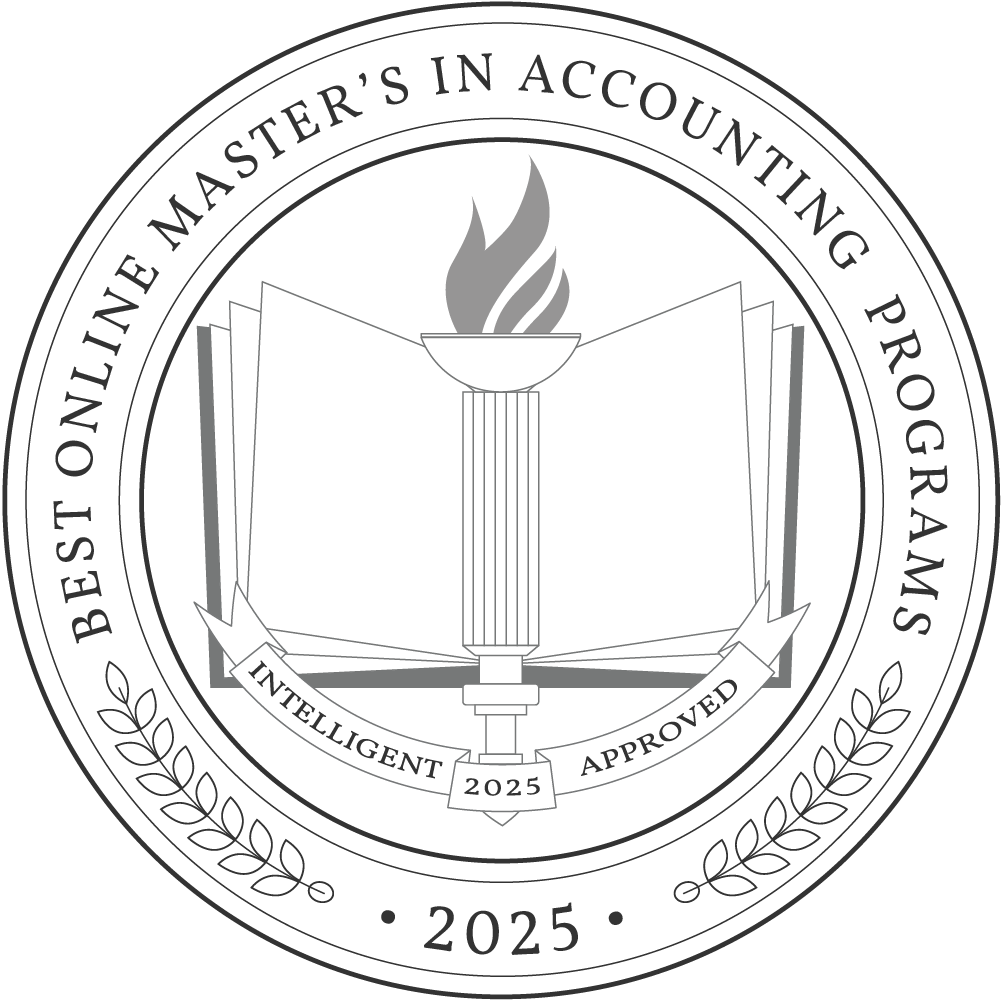Reliable accounting is a pillar of any successful business, as these individuals keep track of a company’s financial records, expenses, taxes, and more. According to the Bureau of Labor Statistics, employment for accountants and auditors is expected to grow steadily through 2031.
For students interested in pursuing an online master’s in accounting, there are many options available. To help students find the best programs in terms of affordability, retention and graduation rates, and reputation, Intelligent.com evaluated dozens of relevant programs, creating this list of the best online master’s in accounting programs for 2023.
We also enlisted Michelle Pickett, the director of Northern Illinois University’s Academic Advising Center, to guide students on choosing the right online master’s in accounting program and what they can expect in terms of admissions requirements, concentration options, career opportunities, and more.
Online Master’s in Accounting Program Overview
Earning your master’s in accounting can open the door to many career opportunities in accounting and finance. Several options are on the table, including pursuing a career as a public accounting firm’s certified public accountant (CPA) and working on auditing, tax preparation, and financial consulting for clients.
For those interested in something other than becoming a CPA but still want to flex their numerical skills, consider a career in management accounting. Professionals in this sector are responsible for organizations’ financial planning, budgeting, and performance evaluation.
Other potential career paths include financial analysts, internal auditors, forensic accountants, tax specialists, controllers, or financial managers in diverse industries like corporate finance, government agencies, nonprofit organizations, and consulting firms. Additionally, a Master’s degree provides a solid foundation for students pursuing further certifications, such as the Certified Management Accountant (CMA) or Certified Internal Auditor (CIA), to enhance their professional credentials and career advancement opportunities.
Why Trust Us
The Intelligent.com Higher Education Team is dedicated to providing students with independent, equitable school and program rankings and well-researched resources. Our expert-driven articles cover topics related to online colleges and programs, paying for school, and career outlooks. We use data from the U.S. Department of Education’s College Scorecard, the National Center for Education Statistics, and other reputable educational and professional organizations. Our academic advisory team reviews content and verifies accuracy throughout the year for the most current information. Partnerships do not influence rankings or editorial decisions.
- Analyzed over 2,000 national, accredited, and nonprofit colleges and universities
- 800+ rankings pages are reviewed and updated yearly
- Content is informed by reputable sources, surveys, and interviews with academic advisors and other experts
- Over 100 data points are reviewed for accuracy and quality throughout the year, including sources
How we rank schools
Our list features the best online Master’s in Accounting degree programs at top colleges nationwide. Each school featured is a nonprofit, accredited institution — either public or private — with a high standard of academic quality for post-secondary institutions.
We evaluated each school’s program on tuition costs, admission, retention and graduation rates, faculty, reputation, and the student resources provided for online students. We collected data from trusted sources like the National Center for Education Statistics, individual school and program websites, school admissions counselors, and other data sources. Then, we calculated the Intelligent Score on a scale of 0 to 100 based on the following criterion:
Academic Quality:
- Admission rate versus enrollment rate
- Retention rate of students who return after year one
- Accreditation status (regional and programmatic)
- Nonprofit status, both private and public institutions
Graduation Rate
- Overall graduation rate
- Total number of currently enrolled students, including diversity metrics
- Student-to-faculty ratio
Cost and ROI
- In-state and out-of-state per-credit tuition rates and fees
- Required credits to graduate
- Earning potential after graduation
- Availability of federal student loans, scholarships, and other financial aid options
Student Resources
- Available student services for online-only and hybrid programs
- On-campus amenities like tutoring centers and the number of libraries
Read more about our ranking methodology.
Best 49 Accredited Online Master’s in Accounting Programs
FiltersInstitution Type
Status
- Intelligent Score
- Alphabetically By University Name
- Acceptance Rate
- Enrollment
- In-state Graduate Tuition
- Out-of-state Graduate Tuition
- In-state Undergraduate Tuition
- Out-of-state Undergraduate Tuition
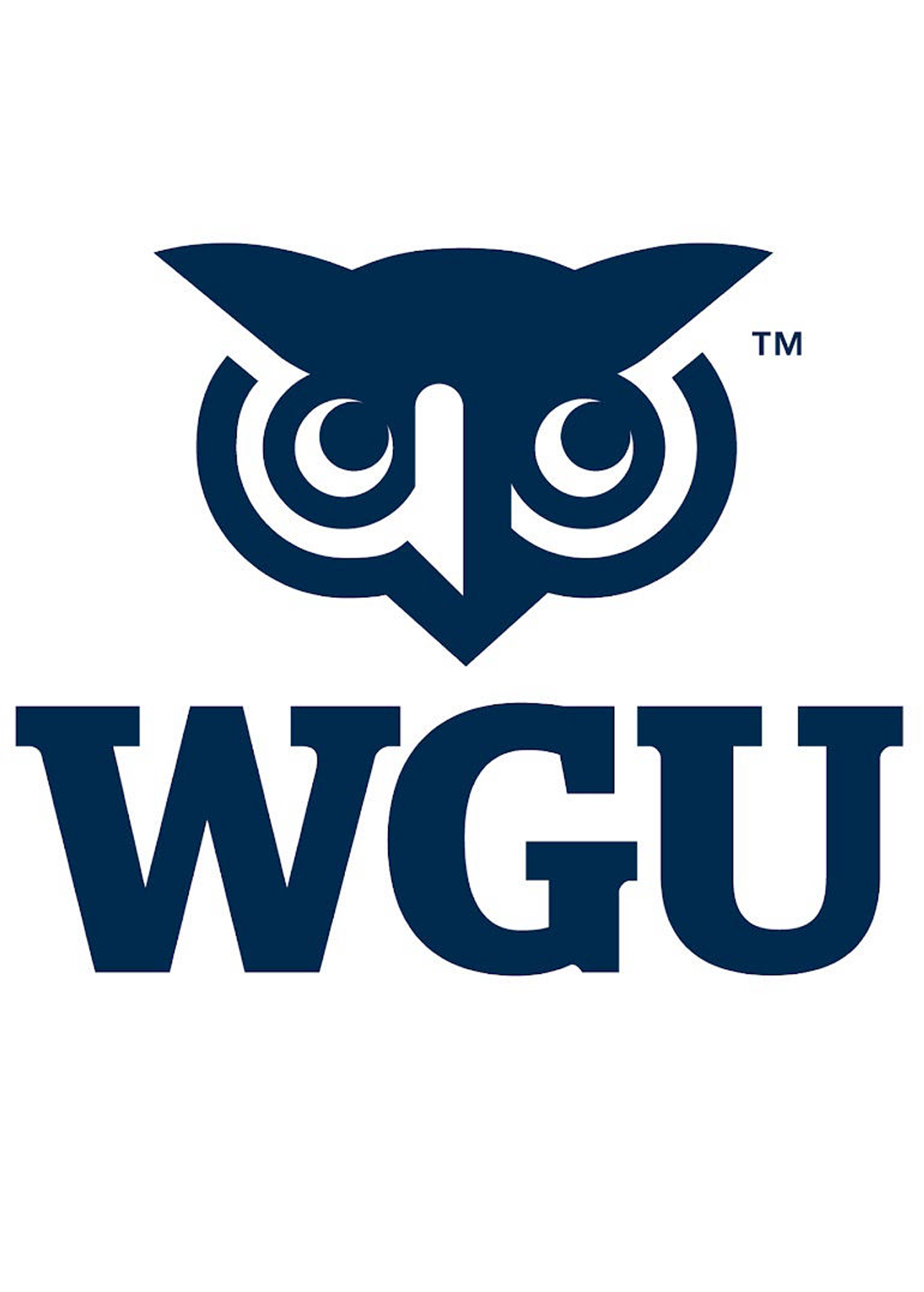
Western Governors University
Intelligent Score: 98.91In-state: $6,380
Out-of-state: $6,380
In-state: $7,500
Out-of-state: $7,500
SAT: N/A
ACT: N/A
$634
Online
Accreditation Council for Business Schools and Programs
30

UNC Kenan-Flagler
Intelligent Score: 98.81In-state: $7,019
Out-of-state: $34,198
In-state: $10,552
Out-of-state: $10,552
SAT: 1280-1490
ACT: 28-33
$1,446
Online
Association to Advance Collegiate Schools of Business
36-48

University of Illinois at Urbana - Champaign
Intelligent Score: 97.84In-state: $14,317
Out-of-state: $33,824
In-state: $15,016
Out-of-state: $15,016
SAT: 1200-1460
ACT: 27-33
$850
Online
Association to Advance Collegiate Schools of Business
32

North Carolina State University
Intelligent Score: 97.82In-state: $6,535
Out-of-state: $26,654
In-state: $9,095
Out-of-state: $9,095
SAT: 1230-1410
ACT: 27-32
Resident: $525
Non-Resident: $1,635
Online
Association to Advance Collegiate Schools of Business
31

FIU College of Business
Intelligent Score: 96.79In-state: $4,721
Out-of-state: $16,529
In-state: $8,912
Out-of-state: $8,912
SAT: 1110-1260
ACT: 23-29
Resident: $455
Non-Resident: $1,001
Online, On Campus
Association to Advance Collegiate Schools of Business
30
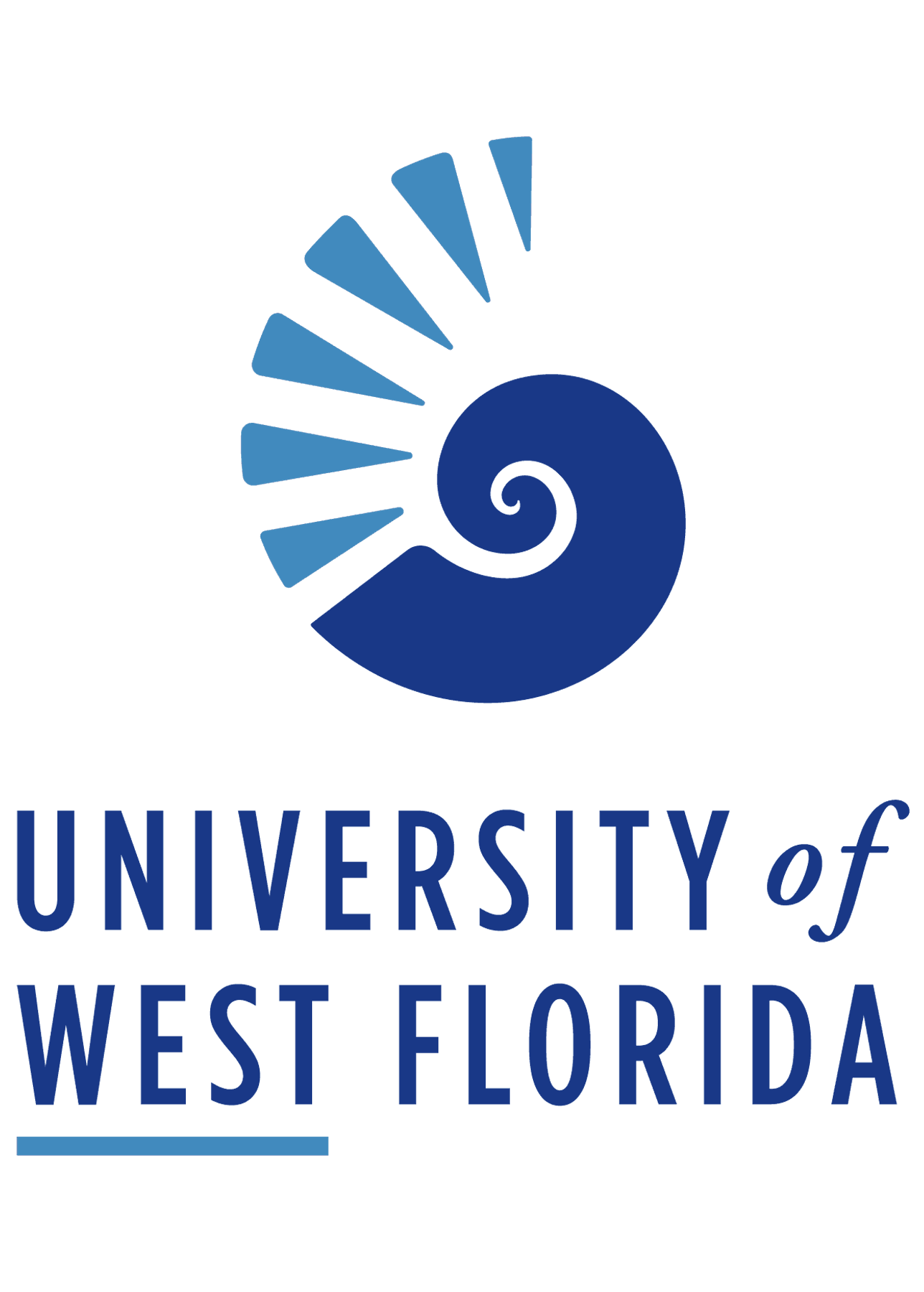
University of West Florida
Intelligent Score: 96.70In-state: $3,735
Out-of-state: $16,004
In-state: $7,088
Out-of-state: $7,088
SAT: 1060-1230
ACT: 21-27
$384
Online
Association to Advance Collegiate Schools of Business
30
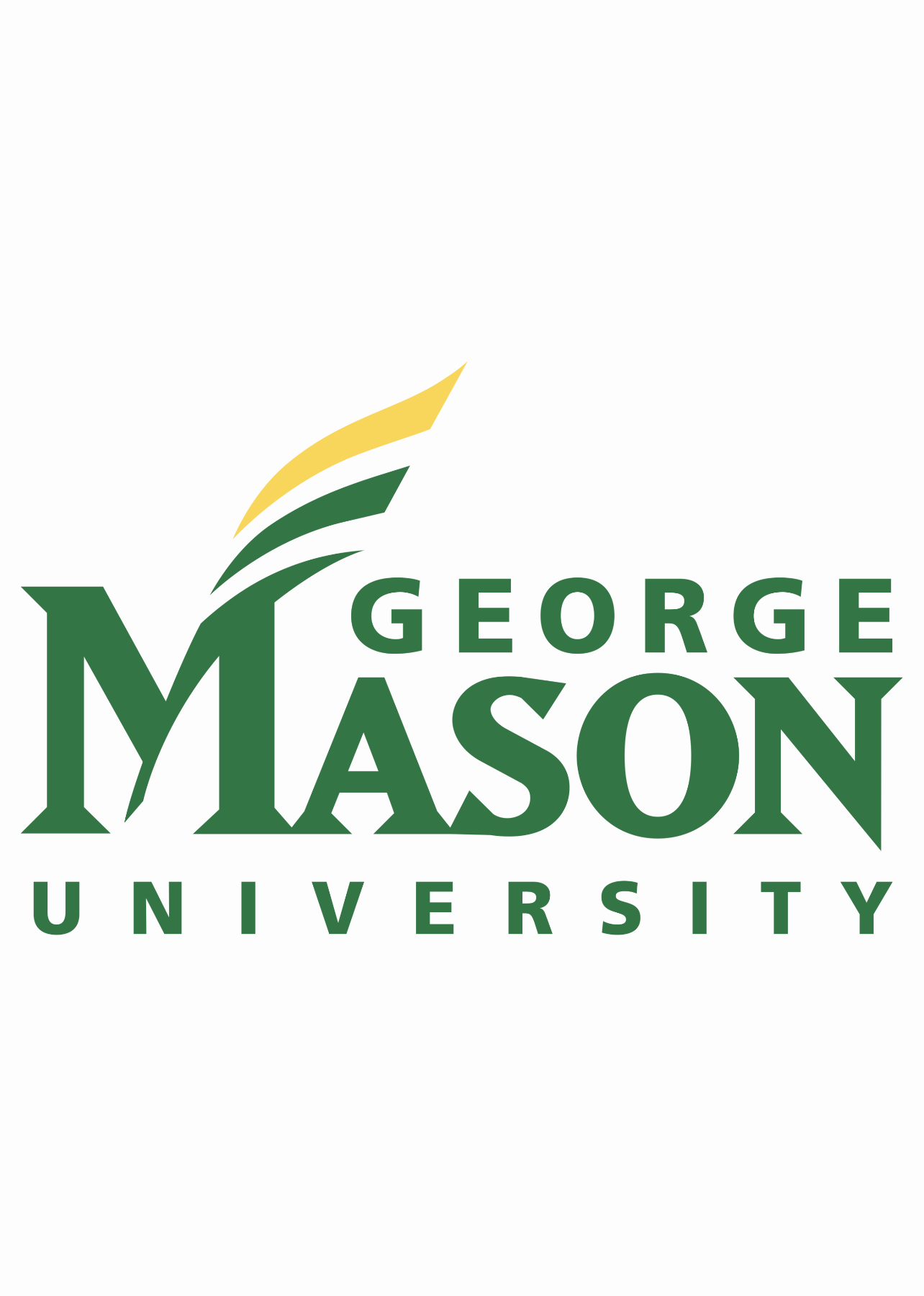
George Mason University
Intelligent Score: 95.86In-state: $9,510
Out-of-state: $32,970
In-state: $12,594
Out-of-state: $12,594
SAT: 1100-1300
ACT: 24-30
$997
Online
Association to Advance Collegiate Schools of Business
30
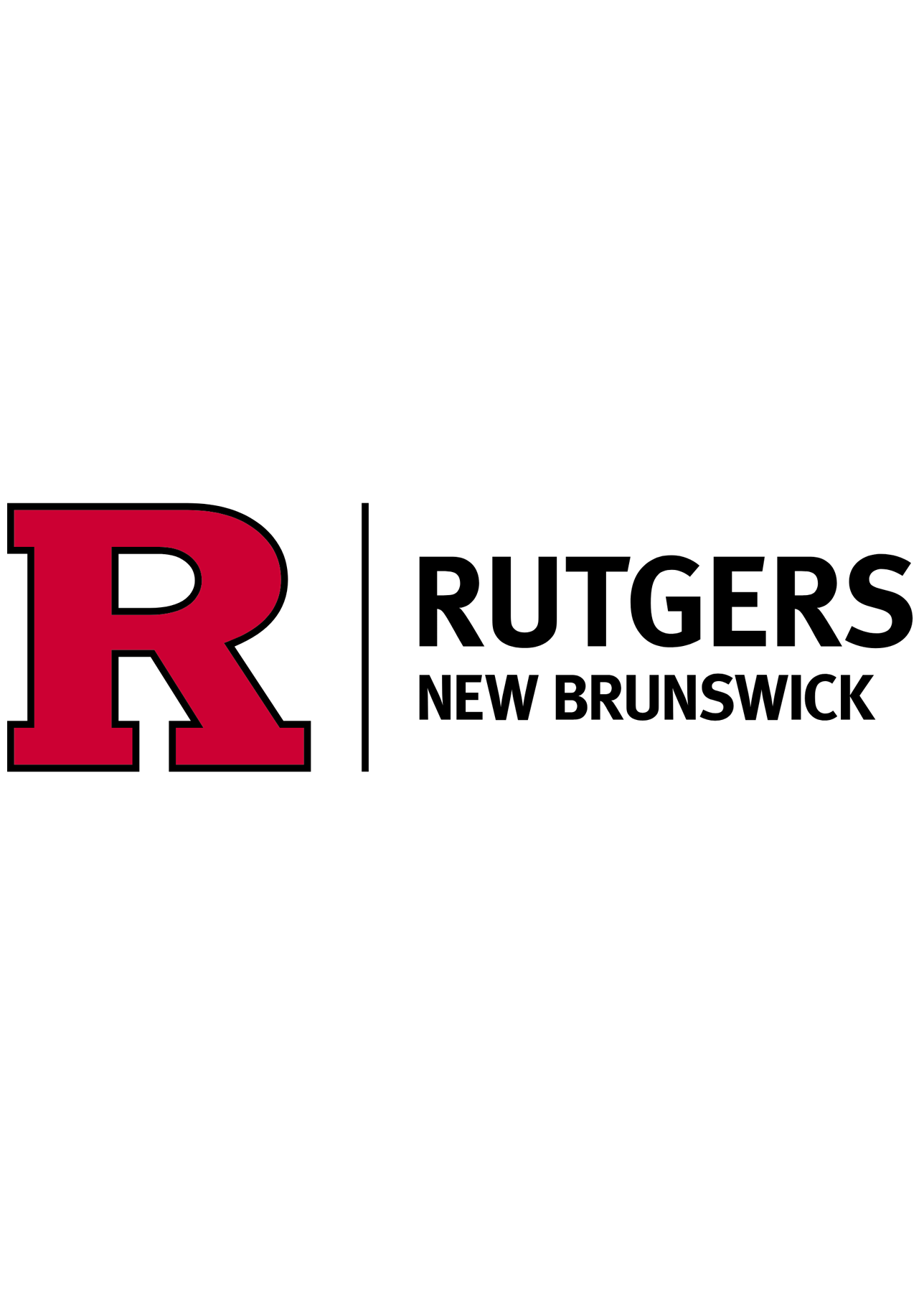
Rutgers University - New Brunswick
Intelligent Score: 95.04In-state: $12,230
Out-of-state: $29,012
In-state: $17,736
Out-of-state: $17,736
SAT: 1180-1410
ACT: 25-32
$1,248
Online
Association to Advance Collegiate Schools of Business
30
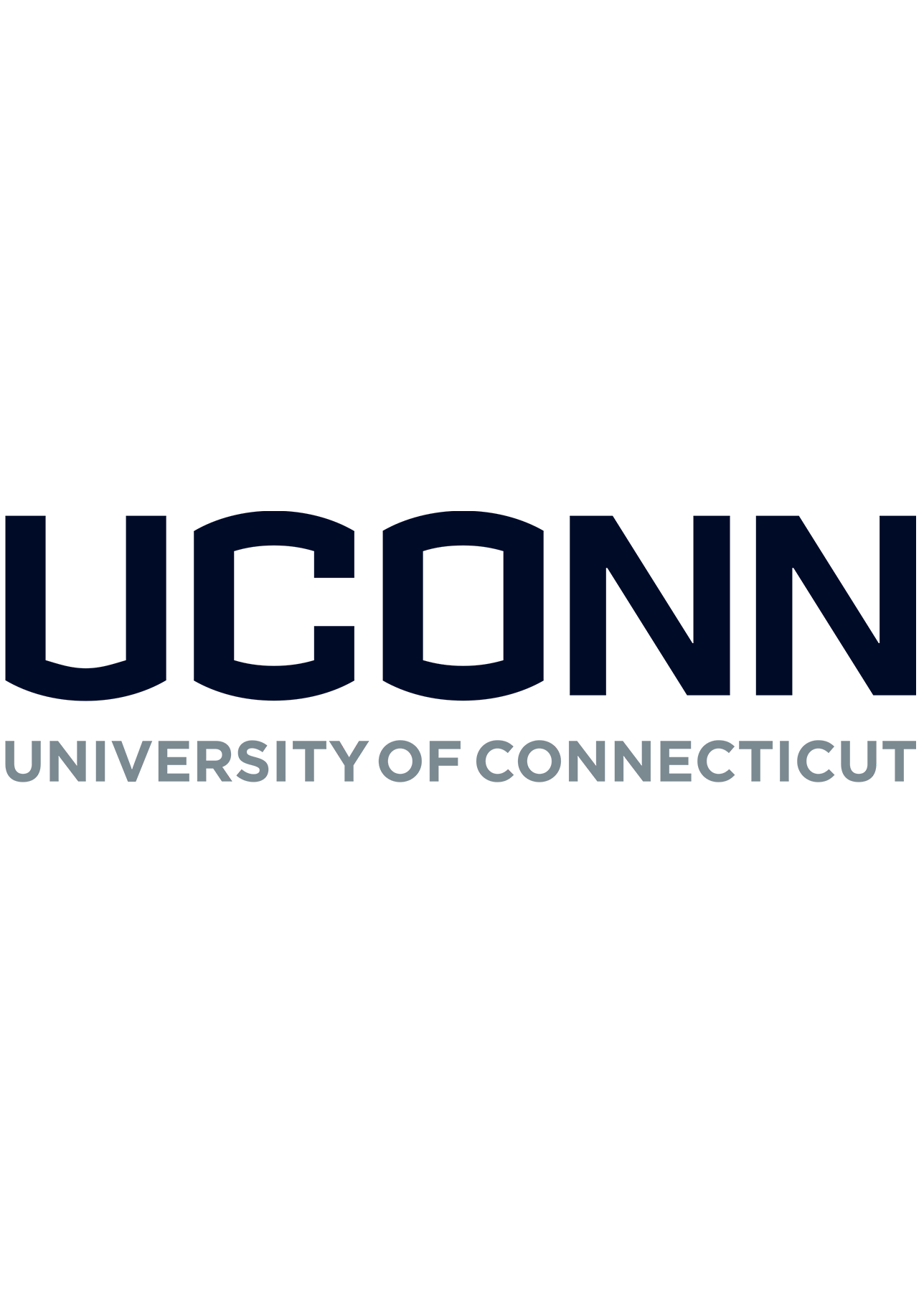
University of Connecticut
Intelligent Score: 94.92In-state: $14,406
Out-of-state: $37,074
In-state: $16,908
Out-of-state: $16,908
SAT: 1170-1390
ACT: 27-32
$1,075
Online
Association to Advance Collegiate Schools of Business
30

UMass Amherst
Intelligent Score: 94.08In-state: $15,791
Out-of-state: $35,779
In-state: $14,014
Out-of-state: $14,014
SAT: 1200-1390
ACT: 27-32
$850
Online
Association to Advance Collegiate Schools of Business
30

Auburn University
Intelligent Score: 92.07In-state: $10,080
Out-of-state: $30,240
In-state: $10,080
Out-of-state: $10,080
SAT: 1160-1320
ACT: 25-31
$950
Online
Association to Advance Collegiate Schools of Business
30-42
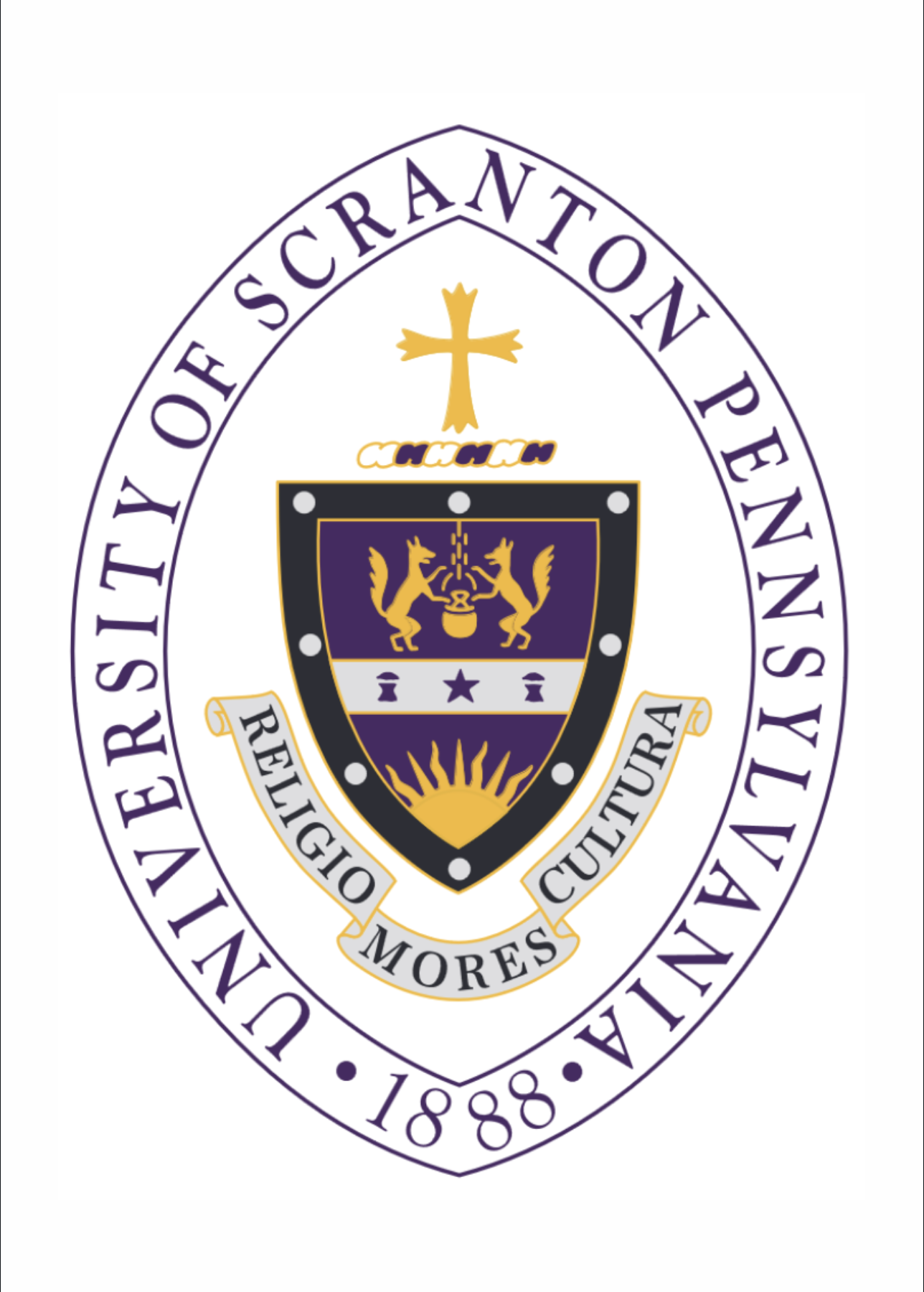
University of Scranton
Intelligent Score: 91.58In-state: $46,684
Out-of-state: $46,684
In-state: $11,580
Out-of-state: $11,580
SAT: 1100-1280
ACT: 23-28
$895
Online
Association to Advance Collegiate Schools of Business
30

Mississippi College
Intelligent Score: 91.17In-state: $18,200
Out-of-state: $18,200
In-state: $11,610
Out-of-state: $11,610
SAT: 1140-1260
ACT: 21-29
$695
Online
Association to Advance Collegiate Schools of Business
30

The University of Texas Rio Grande Valley
Intelligent Score: 90.93In-state: $11,448
Out-of-state: $40,032
In-state: $12,028
Out-of-state: $12,028
SAT: 1210-1470
ACT: 26-33
$472
Online
Association to Advance Collegiate Schools of Business
30

The University of Texas at Dallas
Intelligent Score: 89.96In-state: $11,448
Out-of-state: $40,032
In-state: $12,028
Out-of-state: $12,028
SAT: 1210-1470
ACT: 26-33
In-State:$1,111
Out-of-State: $1,611
Online
Association to Advance Collegiate Schools of Business
36

University of Arizona
Intelligent Score: 89.73In-state: $10,990
Out-of-state: $33,273
In-state: $11,938
Out-of-state: $11,938
SAT: 1090-1350
ACT: 21-29
$1,000
Online
Association to Advance Collegiate Schools of Business
30
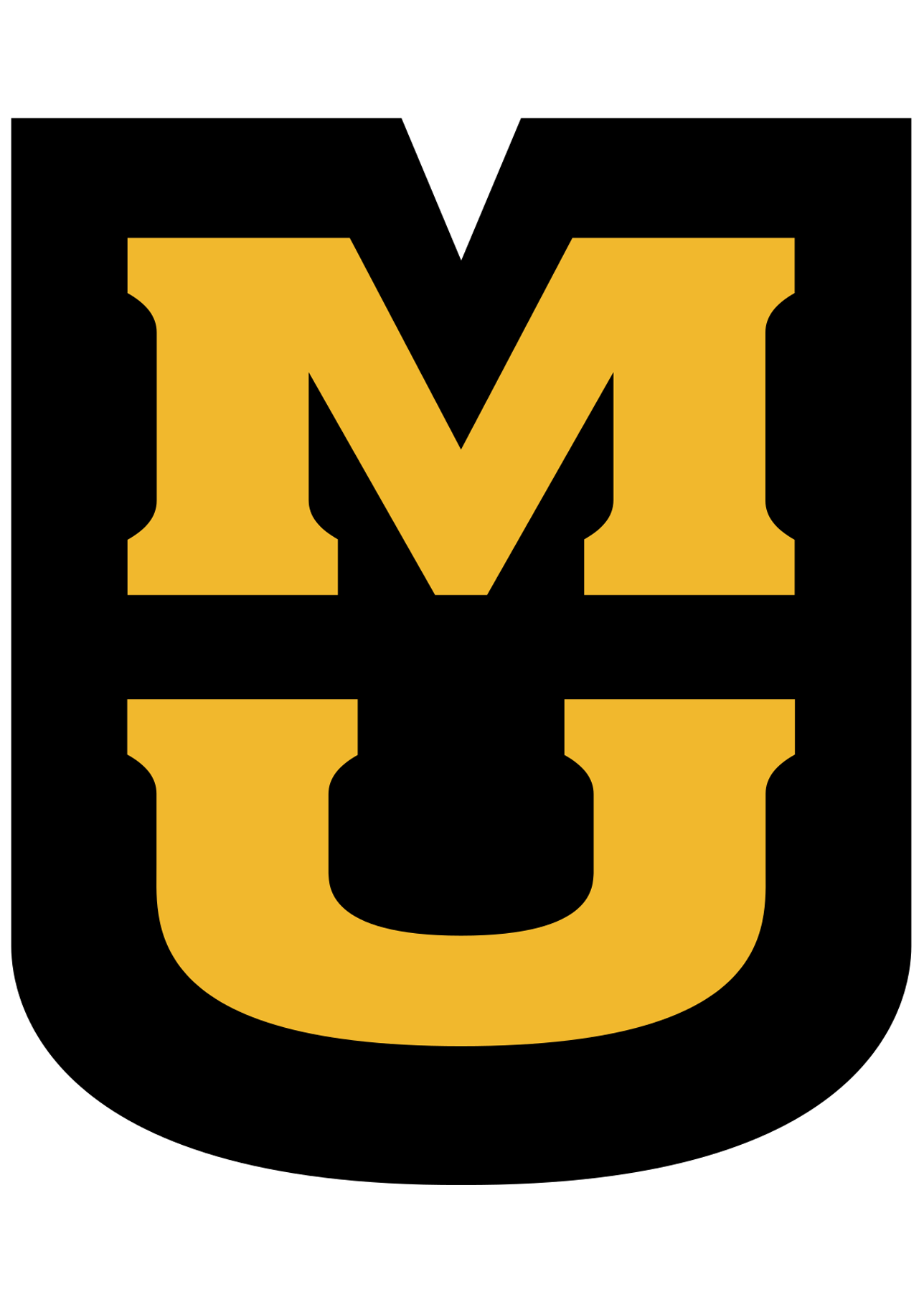
University of Missouri
Intelligent Score: 89.68In-state: $9,330
Out-of-state: $27,612
In-state: $9,478
Out-of-state: $9,478
SAT: 1110-1320
ACT: 23-29
$1,000
Online
Association to Advance Collegiate Schools of Business
30
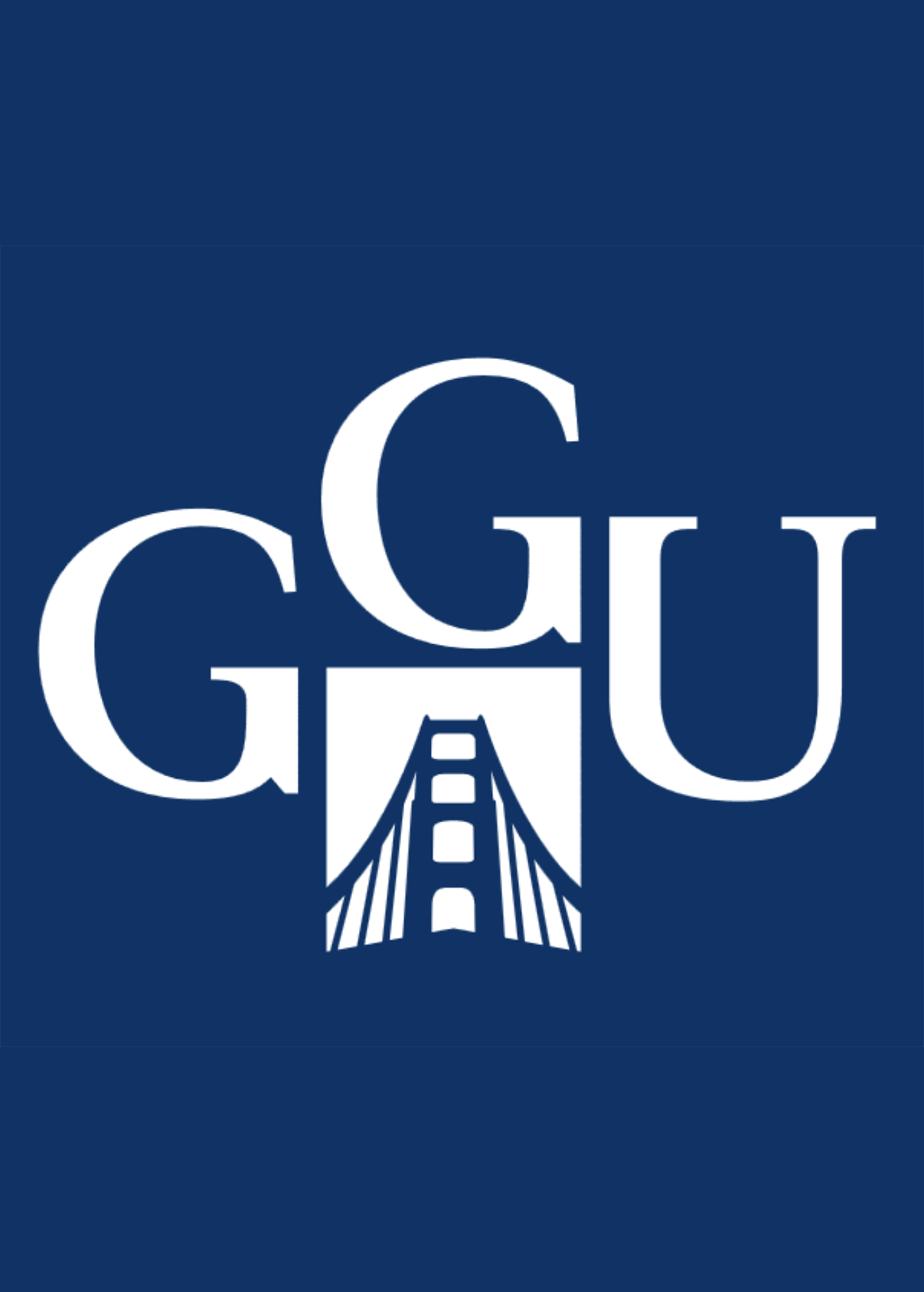
Golden Gate University
Intelligent Score: 89.21In-state: $12,456
Out-of-state: $12,456
In-state: $19,620
Out-of-state: $19,620
SAT: N/A
ACT: N/A
$1,090
Online, Hybrid
Association to Advance Collegiate Schools of Business
30
How To Choose a Master’s in Accounting Degree Program
Choosing the right master’s in accounting degree is vital to ensure that you receive a quality education and optimal career prospects.
First, Pickett recommends verifying that the program and institution offering the degree are accredited by a recognized accrediting body. “Accreditation is important when looking at the academic requirements, standards, and quality of a program’s academic curriculum,” she says. Accreditation ensures that the program meets rigorous academic standards and is respected by employers and professional organizations.
Next, research the reputation of the accounting program and the faculty members who teach there. “How reputable a program is can be based on how long it has existed,” Pickett says. “The longevity of the program also speaks to the quality of the program.” Look for programs with a strong track record, experienced faculty with relevant expertise, and a curriculum that covers core accounting principles and advanced topics. It is essential that the program you choose is aligned with your career goals and can provide opportunities for specialization or concentrations that interest you.
Lastly, assess the program’s retention and graduation rates. “These items speak to the support, engagement, and success of students in their program,” Pickett points out. Additionally, review the job placement rate of graduates to gauge the program’s effectiveness in preparing students for careers in accounting. Higher retention, graduation, and job placement rates can indicate a well-designed and supportive program.
Programs with substantial student support services get bonus points, as these services can enhance your educational experience. “These services help students along the path of completing their degree,” Pickett says. “As you complete your master’s in accounting program, consider programs with cohort-based options. Cohort opportunities help you develop community and networking opportunities with others currently in or entering the career field you are interested in.” Other services to look for include academic advising, career counseling, internship programs, and access to professional development resources.
What to Expect From a Master’s in Accounting Program
Earning a master’s in accounting can take less time than other professional degrees, with most students taking one to two years to complete degree requirements. However, the specific timeline can vary depending on variables like program structure, the student’s availability, and the completion of any required prerequisites.
Most reputable graduate programs in accounting require a completed undergraduate degree from an accredited institution, which lets the school know you have completed the foundational knowledge necessary to pursue graduate coursework. While specific undergraduate majors are required for some schools, some programs may deem prerequisite coursework in accounting or related subjects necessary for admission. Additionally, applicants may need to submit standardized test scores, such as the Graduate Management Admission Test (GMAT) or the Graduate Record Examination (GRE), along with letters of recommendation and a statement of purpose.
How much does a master’s in accounting degree cost?
It’s common to see tuition costs for a master’s in accounting degree ranging from $10,000 to $60,000 per year, although some schools may charge more or less depending on the student’s enrollment type and residency status.
For example, whether the student is enrolled part-time or full-time can influence tuition prices. Full-time enrollment typically involves a higher course load and may have higher tuition fees, but it allows for faster completion. On the other hand, part-time enrollment offers a more flexible schedule for working professionals but may extend the overall duration of the program and result in higher cumulative costs.
Another significant factor affecting tuition prices is the student’s residency status. In-state residents benefit from lower tuition rates compared to out-of-state or international students. Public institutions often have different tuition structures for in-state and out-of-state students, with in-state students paying a lower rate due to taxpayer subsidies. Out-of-state or international students are often subject to higher tuition fees that reflect the total cost of their education.
Of course, there are other expenses to consider beyond the cost of tuition, like textbooks, additional course materials, and living costs. These expenses can significantly impact the overall cost of pursuing higher education, but some may be more manageable than others. For instance, you can reduce costs by renting textbooks instead of buying them or living with roommates instead of living alone.
What are the admission requirements for a master’s in accounting degree?
Admissions requirements vary depending on the university and program, but some requirements and prerequisites are standard. When it comes time to prepare your applications for admission, keep the following elements in mind:
- Bachelor’s Degree: Most reputable graduate schools will require a completed undergraduate degree from an accredited institution to be eligible for admission. Some programs recommend a degree or significant coursework in accounting or finance. In contrast, others may offer prerequisite coursework to bridge knowledge gaps if your degree is in a different field.
- Prerequisite Courses: Some programs may require prerequisite coursework to illustrate a foundational knowledge of accounting and finance. These courses ensure students have the financial or managerial accounting, taxation, and auditing skills to pursue graduate-level coursework.
- GPA Requirement: Most programs have a minimum grade point average (GPA) requirement for admission. The specific GPA requirement can vary but is typically a 3.0 on a 4.0 scale.
- Standardized Test Scores: Many master’s in accounting programs require applicants to submit test scores from standardized tests like the Graduate Management Admission Test (GMAT) or the Graduate Record Examination (GRE). Some programs may offer waivers for test scores based on work experience or a high undergraduate GPA.
- Letters of Recommendation: Applicants must often submit letters of recommendation from people who can speak to their potential for success in a graduate accounting program. This number can vary, but most programs request two to three letters.
Accounting Degree Concentrations
By pursuing a master’s in accounting, you can seek out a variety of specializations to suit your educational interests and help you meet your career goals. The following list includes some of the most popular concentrations in this field.
Financial Accounting
Students interested in joining the financial sector post-graduation will enjoy a concentration in financial accounting. This field focuses on advanced financial reporting and analysis topics, including accounting standards, financial statement analysis, and complex financial transactions.
Taxation
Meticulous individuals with an eye for essential details may excel in a taxation concentration. This concentration focuses on high-level tax concepts, tax planning strategies, compliance, and research. Students learn about individual and corporate taxation, international taxation, and tax implications for business decisions.
Auditing and Assurance
Analytical students with an ethical aptitude may thrive in auditing and assurance. This specialization emphasizes the theory and practice of auditing and assurance services. Students study audit procedures, risk assessment, internal controls, ethics, and professional standards in auditing.
Managerial Accounting
Natural leaders seeking a career that hones in on their numerical aptitude may enjoy pursuing a concentration in managerial accounting. This concentration explores the role of accounting in organizational decision-making and performance evaluation. It covers cost accounting, budgeting, forecasting, performance measurement, and strategic management accounting.
Forensic Accounting
Students with an investigative mindset are well-suited for a concentration in forensic accounting. Concentrating on forensic accounting equips students with the skills to detect and investigate financial fraud, economic crimes, and irregularities. Students learn about fraud examination, litigation support, forensic data analysis, and the legal aspects of forensic accounting.
Is a specialized master’s in accounting degree better than a general master’s in accounting degree?
Whether a specialized master’s in accounting degree is better than a general one depends on your unique career goals and aspirations.
A specialized program offers a focused curriculum that examines in detail specific areas of accounting, like taxation, auditing, or forensic accounting. These degrees provide specialized knowledge and skills in a particular field, making graduates highly competitive for roles in that sector.
Alternatively, a general master’s in accounting degree offers a comprehensive education that covers multiple areas of accounting and provides a well-rounded skill set applicable to a wide range of accounting roles. It allows graduates to explore different career paths within the accounting profession and provides flexibility in adapting to evolving industry demands.
Ultimately, this choice depends on your unique interests and desired level of specialization. Carefully consider your career aspirations and the specific curriculum each program offers to make an informed decision that aligns with your professional objectives.
Career Opportunities for Master’s in Accounting Degree Graduates
With a master’s in accounting degree, you can pursue various career opportunities. Here, we’ve listed some potential careers with this type of degree.
- Certified Public Accountant (CPA): Many graduates pursue careers as CPAs, working in public accounting firms. They provide services to clients such as auditing, tax preparation, financial reporting, and consulting to clients. Average annual salary: $77,250
- Financial Analyst: Graduates can work as financial analysts, analyzing financial data, preparing financial reports, and providing insights and recommendations to support investment decisions or strategic planning. Average annual salary: $64,213
- Internal Auditor: Graduates can work as internal auditors within organizations, assessing internal controls, evaluating financial processes, and identifying areas for improvement to enhance efficiency and mitigate risks. Average annual salary: $63,158
- Forensic Accountant: Graduates interested in examining financial wrongdoing or fraudulent activities will do well in forensic accounting. They collaborate with legal teams, conduct thorough analyses of financial information, and offer expert insights and testimony during legal proceedings. Average annual salary: $75,712
- Budget Analyst: Graduates can pursue careers as budget analysts, working in organizations to develop and manage budgets, monitor spending, and provide financial insights to support effective resource allocation. Average annual salary: $63,554
Is a master’s in accounting degree worth it?
“Yes,” says Pickett, “a master’s in accounting degree program is a great opportunity for those interested in learning more about advanced accounting procedures or working for top accounting firms.” A career in accounting offers several benefits, including favorable job growth projections and a promising return on investment (ROI).
While the job growth rate for accountants and auditors holds steady at 6%, which is about as fast as the average for all occupations, a master’s in accounting also prepares students for a career in financial management. The demand for financial managers, especially those specializing in cash and risk management, is expected to increase by 17% over the next decade. As businesses expand and monetary systems become more intricate, the demand for skilled accountants and financial managers with advanced qualifications is expected to remain strong.
In terms of salary, earning a master’s degree will qualify you for higher-paying positions. If you pursue a career in financial management, you can expect a median annual salary of $131,710. Accountants, who typically only need a Bachelor’s degree, earn a median yearly salary of $77,250, meaning that you can get an additional $54,460 per year with a Master’s degree.
These factors speak to a positive ROI, and the University of North Carolina data backs it up. Since a master’s in accounting takes less time to complete than other professional degrees, like medicine or law, graduates are likely to accrue significantly less student loan debt than individuals in different fields. Additionally, graduates with a master’s in accounting can double their starting salary in five years.
Considering these figures, it’s evident that the ROI of a master’s in accounting can be significant. While it’s important to evaluate individual circumstances, such as your financial situation and career goals, the combination of favorable job growth projections, higher earning potential, and the overall value of advanced knowledge and skills make a master’s in accounting a worthwhile investment for anyone looking to enter the finance industry.
Online College/Degree Scholarship Database
Intelligent Scholarship Finder Tool
"A Helping Hand" Scholarship
Award Amount: $500
Due Date: January 31, 2025
"Follow Your Own Path" Essay Scholarship
Award Amount: $500
Due Date: January 31, 2025
"Tuition Solution" Scholarship for STEM Students
Award Amount: $500
Due Date: January 31, 2025
$25k "Be Bold" No-Essay Scholarship
Award Amount: $25,000
Due Date: Closed for 2024
(ISC) Graduate Cybersecurity Scholarship
Award Amount: $5,000
Due Date: Closed for 2024
(ISC) Women in Information Security Scholarship
Award Amount: $5,000
Due Date: Closed for 2024
A.C. "Kate" & Leo Joseph Merlone St. Dominic Catholic Church of Saginaw Member Scholarship
Award Amount: Varies
Due Date: Closed for 2024
A.C. "Kate" & Leo Joseph Merlone Teaching Scholarship
Award Amount: Varies
Due Date: Closed for 2024
a/e ProNet David W. Lakamp Scholarship
Award Amount: $5,000
Due Date: Closed for 2024
AAAE Native American Scholarship
Award Amount: $1,500
Due Date: March 15, 2025
5 Steps To Earning an Online Master’s in Accounting Degree
1. Make sure it’s the right choice
“The key word is fit,” Pickett recommends. “Factors when considering fit include (but are not limited to) cost, length of the program, internship opportunities, job placement, and the alum network.” However, assessing your learning style and personal preferences is also essential.
Online programs require self-discipline, time management, and motivation to stay engaged without the structure of a traditional classroom. “Ask yourself, ‘Can I learn best in an online or an in-person classroom environment?'” Pickett suggests. “Be mindful of the changes necessary in your daily life to pursue a graduate degree.” While online programs offer the convenience and the ability to study from anywhere, students must ensure they have the time and resources to dedicate to coursework. Finding an excellent balance between work, family commitments, and other responsibilities will be essential.
2. Research schools and programs
When researching schools and programs for your degree, it helps to follow a systematic approach.
First, compile a list of accredited institutions offering online accounting programs that interest you. Check for regional accreditation from institutions like the Higher Learning Commission (HLC) or the Middle States Commission on Higher Education (MSCHE) and programmatic accreditation from the Association to Advance Collegiate Schools of Business (AACSB) or the Accreditation Council for Business Schools and Programs (ACBSP).
Next, thoroughly examine each program’s website, considering the curriculum structure, course offerings, faculty qualifications, and program outcomes. Keep an eye out for program-specific information, such as specializations or concentrations, CPA exam preparation, and opportunities for internships or networking.
Additionally, explore informational webinars, virtual open houses, or online events hosted by the programs. These events allow students to interact with faculty, advisors, and current students, enabling them to ask questions and gain a deeper understanding of the program’s offerings and culture.
3. Prepare for tests and applications
Investing time and effort in preparing for standardized tests and applications is essential to ensure you present yourself in the best possible way. Your test scores and application materials are an excellent way to make a remarkable impression on any admissions committee.
Begin by familiarizing yourself with the specific admission requirements of the programs you plan on applying to, which may include standardized tests like the GMAT or GRE, so allocate ample time for test preparation and practice. Use study materials, online resources, and practice exams to build your skills and confidence. To take your test preparation to the next level, consider enrolling in a test prep course for either test.
In addition to test preparation, this is the time to focus on developing a compelling application package, which may involve writing a well-crafted personal statement highlighting your motivations, goals, and relevant experiences. You should also invest some time in gathering solid letters of recommendation from people who can speak to your character, academic abilities, and potential for success in accounting. Reach out to potential recommenders well in advance, providing them with relevant information and deadlines.
4. Determine how you’ll pay for your degree
At this stage, determining how to finance your degree is essential. First, explore scholarship opportunities offered by academic institutions, professional organizations, and private foundations. Scholarships are a popular option for funding higher education, as they don’t have to be paid back and are often merit- or need-based. Apply early, as competition can be intense.
Another option is to explore grants typically awarded based on financial need. Check out federal grant programs like the Pell Grant and state or institutional grants. Like scholarships, grants do not require repayment and can alleviate financial burdens.
Federal loans are another common funding source. By completing the Free Application for Federal Student Aid (FAFSA), you can determine your eligibility for federal loans. Federal loans offer lower interest rates and more flexible repayment options than private loans.
Lastly, consider seeking part-time employment or assistantships within your school. These opportunities not only provide financial support but also offer valuable work experience in the field.
5. Select your program
Now that you have researched and covered your bases, it’s time to select your program. Ultimately, choosing a program that provides a quality education and offers the resources and support necessary to ensure a supportive, successful academic journey and a meaningful career is crucial.
Read More about Online Master’s in Accounting Degrees
Compare School Options
Related Degrees
- Sports Management
- Logistics
- Business Administration
- International Business
- Real Estate
- Negotiation and Conflict Management
- Nonprofit Management
- Human Resources Certification
- Organizational Leadership
- Economics
